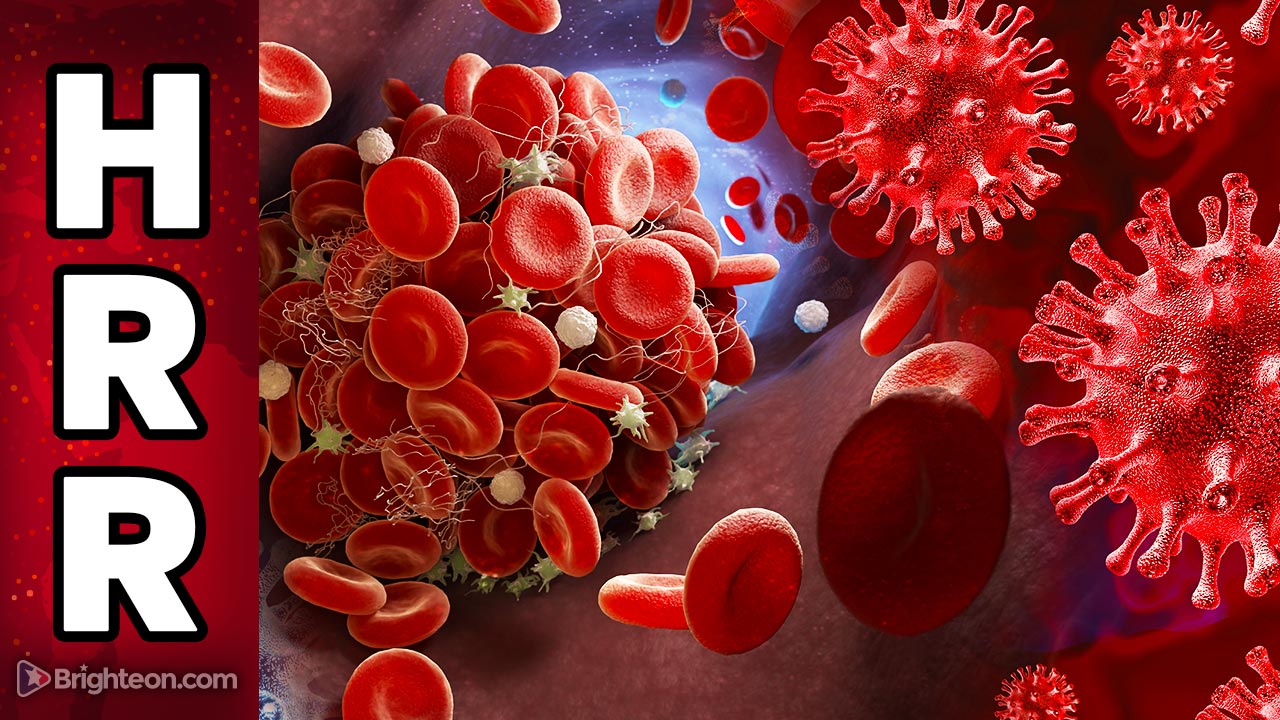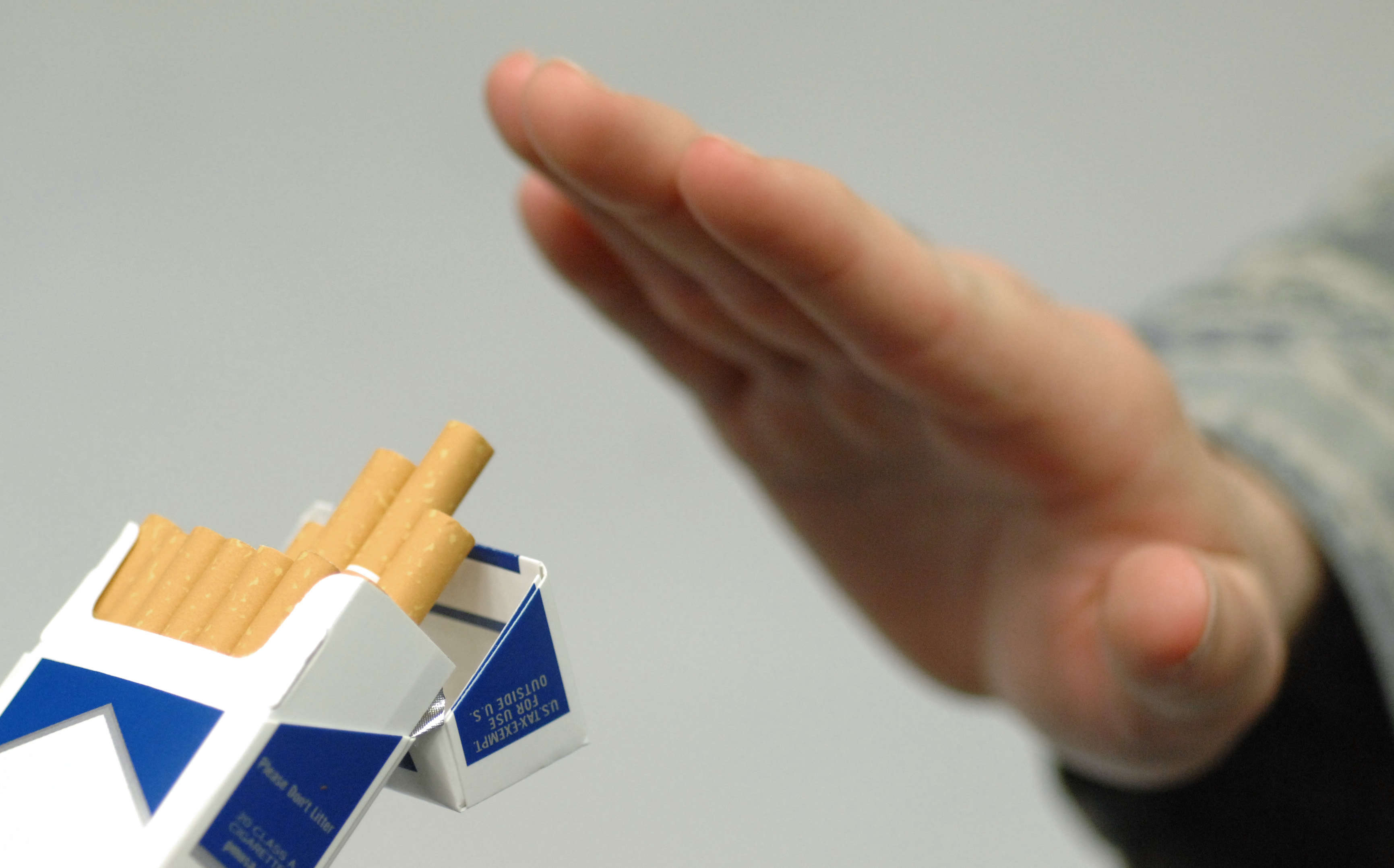Tips to reduce your risk of developing inflammatory bowel disease
01/24/2023 / By Olivia Cook

Experts and health professionals recommend the following tips to reduce your risk of developing inflammatory bowel disease (IBD).
Follow a healthy diet
A study published in the journal Acta Biomedica established the role of diet and probiotics supplementation in restoring the balance of the intestinal microbiota and in improving IBD symptoms. (Related: Suffering from inflammatory bowel disease? A healthy diet may help ease your pain.)
Taking into account individual genetic makeup, researchers recommend diets rich in foods that maintain a healthy intestinal microbiota, preventing dysbiosis (the imbalance of microbial species or diversity within the gut microbiome), which has been implicated in the pathogenesis of IBD.
Make sure your diet is rich in fruits, vegetables, fish oil, whole grains and olive oil, which provide nutrients, such as vitamin D, essential fatty acids, minerals and fibers. (Related: Curcumin found to be a safe and inexpensive alternative for treating IBD.)
Improve sleep quality
Sleep problems are common in IBD, reducing the quality of life and the ability to cope with pain, fatigue and other symptoms, according to Crohn’s and Colitis Canada. Sleep problems can also make IBD worse by affecting the patient’s immune system.
Here are some tips to improve sleep quality:
- Do not try to force yourself to sleep as this can actually worsen insomnia.
- Do relaxing activities (meditation, yoga) at least one hour before bed.
- Try to go to sleep and wake up at the same time each night.
- Do not take naps during the day.
- Engage in physical exercise daily.
- Avoid caffeine before bedtime.
- Avoid working or watching TV in bed.
- Keep your room dim at night.
- Keep a sleep journal to see if there are any trends or patterns in your sleep.
- Consider seeing a sleep specialist.
Manage stress
A comparative study published in the journal Digestive Diseases and Sciences has proven the beneficial role of regular exercise in IBD patients who have higher levels of daily stress and a lower quality of life, including those patients who suffer from other chronic diseases compared to the general population.
Exercise regularly
Findings of a study published in the journal BioMed Research International point to the important role of exercise in the adjunct treatment of IBD.
Researchers said: “The fact that selection of a proper dosage of the exercise was able to alleviate colitis symptoms, reduce colon inflammation and counteract the adverse effects associated with pharmacological therapy (e.g., 5-aminosalicylic acid) seemed to be of key interest in convincing medical professionals to adopt the lifestyle strategy as an adjunct therapy in their IBD treatment.”
A study published in the journal Gastroenterology Nursing provided exercise guidelines specifically for IBD patients. Researchers recommend an aerobic activity for 20 minutes to 60 minutes, two to five days every week, accompanied by resistance exercise at least twice per week.
Recent research suggests that the beneficial effects of regular exercise may be in part due to the anti-inflammatory effects of myokines released due to skeletal muscle contractions.
Stay hydrated
Keeping hydrated supports healthy digestive function. Dehydration can lead to digestive problems, including constipation and an overly acidic stomach.
Staying hydrated by getting enough water every day is important for people with ulcerative colitis, an IBD condition, because they can lose a lot of fluids through frequent diarrhea.
A number of studies reviewed in an article published in the journal Annals of Gastroenterology suggested that electrolyte deficiencies in ulcerative colitis patients may even be life-threatening. The article provided a few dietary suggestions to ensure electrolytes are included in the patients’ daily menu:
- Sprinkle some salt in moderation on food and sip bone broth for sodium.
- Eat potassium-rich foods, such as avocados, bananas, coconut water, grapefruit, melons and potatoes.
- Include more chloride in your diet by adding rye, seaweed and tomatoes, as tolerated. A little salt also helps to provide chloride.
- The best sources of phosphorus for patients with IBD are ancient grains, such as amaranth and sprouted lentils blended, organ meats and poultry.
- Magnesium-rich foods to include in the diet are leafy greens (spinach), cruciferous vegetables (broccoli), whole grains, legumes, seeds and nuts, as tolerated. Oral supplementation of magnesium up to 700 mg/day may be indicated as monitored by a medical professional.
IBD and celiac disease
Research finds that IBD and celiac disease are linked – meaning, someone living with one of these conditions has increased odds of having the other one. Experts say this is important because failing to diagnose one or the other condition in patients could compromise proper response to the available treatments.
The Celiac Disease Foundation estimates celiac disease (a serious autoimmune disease that occurs in genetically predisposed people where the ingestion of gluten leads to damage in the small intestine) affects “1 in 100 people worldwide but only about 30 percent are properly diagnosed.”
A study published online in The American Journal of Gastroenterology, found that after the first year postdiagnosis, patients with celiac disease had an almost four-fold increased risk of IBD and patients with IBD had more than a five-fold increased risk of celiac disease.
“The risk of IBD in celiac disease (and vice versa) showed a distinct increase even 10 years after the first diagnosis,” the authors wrote. “During 20 years of follow-up, 2.5 percent of celiac disease patients developed IBD, and 1.3 percent of IBD patients developed celiac disease.”
Watch this video to learn more about celiac disease, liver disease, small intestinal bowel growth (SIBO), IBD and other digestive disorders.
This video is from TheWildDoc channel on Brighteon.com.
More related stories:
Study: Ultra-processed foods linked to increased risk of developing inflammatory bowel disease.
Science-backed eating tips for those with inflammatory bowel disease.
Living on a farm found to drastically reduce the risk of inflammatory bowel disease.
Sources include:
Submit a correction >>
Tagged Under:
alternative medicine, celiac disease, digestive health, dysbiosis, electrolyte imbalance, exercise, food cures, food is medicine, gut microbiome, health science, hydration, IBD, inflammatory bowel disease, mind body science, natural cures, natural health, natural medicine, Naturopathy, nutrition, prevention, remedies, sleep quality, tips, ulcerative colitis
This article may contain statements that reflect the opinion of the author
RECENT NEWS & ARTICLES
COPYRIGHT © 2017 REMEDIES NEWS




















